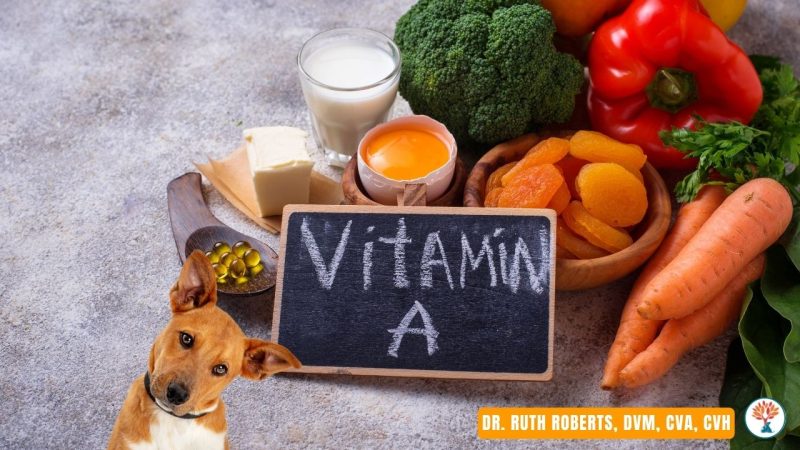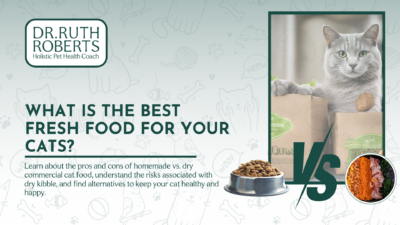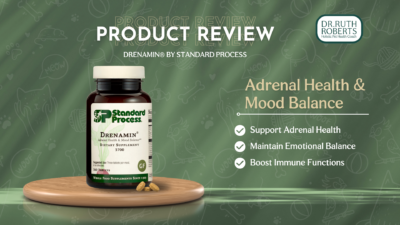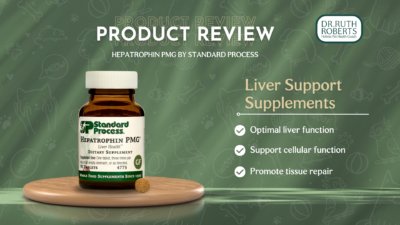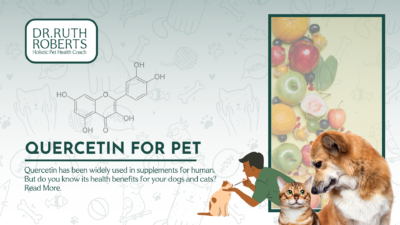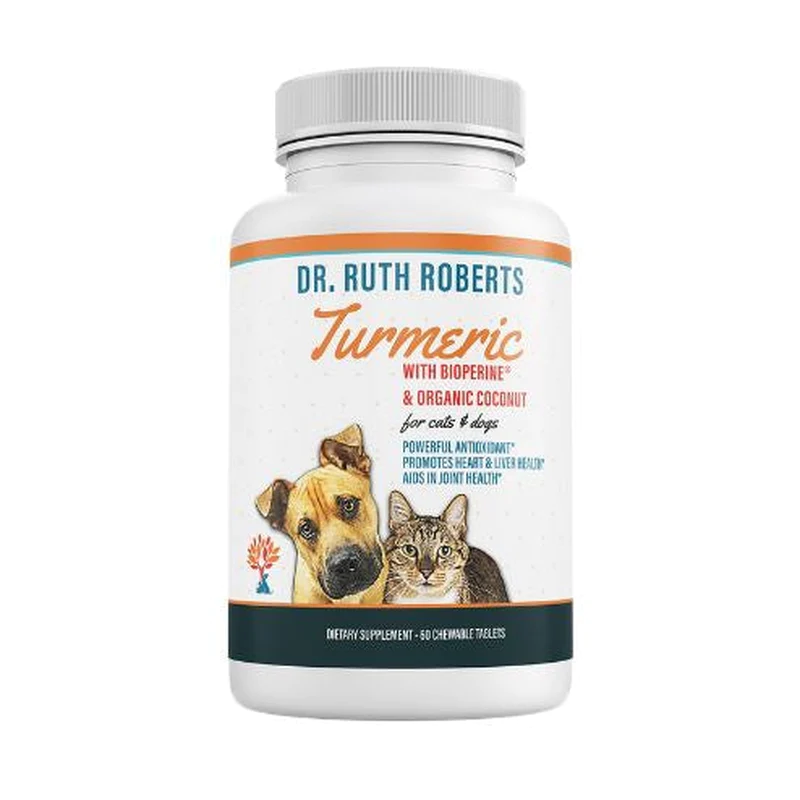The Importance of Vitamin A for Dogs
Have you ever wondered if your dog has a Vitamin A deficiency or if Vitamin A is helpful for dog skin? Or for that matter, would a Vitamin A dosage for dogs disease? If that is the case, I’ve got some info coming up for you.
Why is Vitamin A important for animals?
Well, the reason is that it is an essential vitamin. That means that your pet must eat enough of it to have enough Vitamin A in its body to do all of the things that the body needs to do.
What are the benefits of Vitamin A For Dogs?
Well, it is massively important for the Vitamin A for dog’s skin and coat health is massively important. It’s super important in immune function, which is part of why it became extremely popular during the advent of COVID. It’s also important for improving muscle function and for nursing pumps. The mother has to be eating enough Vitamin A to pass that on to her puppies and the milk.
Why is Vitamin A important for dogs? Do dogs need Vitamin A?
As I said, it’s a very important component of our coat and skin health. For some breeds that are predisposed to making things like sebaceous, cysts, and other skin problems, it can be a super huge boost and the recovery of that pet skin. So, how much would you give? I think a good starting dose is about 5,000 per 10 to 20 pounds of body weight. In addition to what your pets are already eating, if it does indeed have skin issues.
You will read that Vitamin A is toxic, but in reality, it’s pretty hard to induce a toxicosis. So we know that the safe upper limit of Vitamin A for both puppies and dogs is about a hundred thousand. If you are in national units or more recently, what you’ll see on the label of Vitamin A is micrograms.
So that converts to about 30,000 micrograms and because we always dose vitamins based on the food, it is based on a thousand kilocalories of food. So what does that mean for the average dog? For a 10-pound dog that’s eating about 300 calories per day, then that would be about 30,000 micrograms per day or about 10,000 micrograms, a little bit less, maybe 9,000, something like that.
But the point is that the food, which usually is around 50,000 international units per 1000 kilocalories, has that much. So for that 30-pound dog, they’re reading about, say 15,000 17,000 international units per day and we add 5,000 international units in supplementation; we should be in pretty good shape. The likelihood of toxicity developing is slim to none. So for instance, in humans, it would take something like 300,000 international units daily for six weeks to start to develop toxicity. So that kind of leads us to another question.
Vitamin A Deficiency Symptoms in Dogs
Vitamin A deficiency has been linked to anomalies in mucus-producing cells. When combating a (typically mild) common cold, these anomalies can emerge as dry, itchy eyes and lung problems such as a susceptibility to develop pneumonia.
Dogs with severe vitamin A deficiency are usually feeble and will refuse to eat. They may also have trouble traveling at night due to night blindness caused by a deficit.
Vitamin A deficiency is especially harmful to puppies since retinol is essential for bone growth and remodelling. This can result in stunted growth and anomalies in the bones of the inner ear, leading to deafness or hearing loss in certain dogs. Pregnant dogs can also develop fetal abnormalities.
Are there specific dogs Prone to Vitamin A deficiency?
Vitamin deficits are rarely caused by food, particularly when dogs are fed high-quality, nutritionally balanced chow. Genetics and malabsorption, or a combination of both, are the most common causes of deficiency. Vitamin A deficiency is more common in the following breeds:
- Spaniel Cocker
- Reriever, Labrador
- Schnauzer miniature
- Shar-Pei
Should I give my dog vitamins every day?
Because not all dogs can absorb vitamin A from food. Certain genetic abnormalities can make it difficult, if not impossible, to metabolize certain vitamins. Vitamin A pills for dogs are usually beneficial to these puppies.
Supplementing with vitamin A can help dogs with modest energy shortages. Supplementing might also help you have a brighter coat and better skin. Puppies can benefit from a little additional vitamin A to keep their growth on pace because vitamin A is important for bone development.
I think that you can make a case for that because so much of the processed food, the vitamins that have been sitting around in storage for sometimes six months before you feed it. If you are making food at home, you need to add vitamins to help bring that food up to its optimal quality. More importantly, you have control over what you’re doing. You could take a vacation day once a week.
I think that there are a lot of benefits in terms of the vitamins that the body can produce. If it has to do it one day out of every week, it’s able to continue to do so. I hope that answered your questions about Vitamin A and dogs and gave you an idea of some of the benefits of Vitamin A for dogs.
How much vitamin A is good for dogs?
From the skeletal to the reproductive systems, this vital vitamin aids in the maintenance of practically every organ system.
Vitamin A is well known for its role in eye and skin health, but it also has a variety of other purposes. Vitamin A is required for brain and bone development from the time a baby is born. Vitamin A works at the molecular level, assisting cells in their transformation into more specialized cells known as cellular differentiation.
Vitamin A for dogs aids them from getting sick by assisting in the immunological response and the formation of protective mucus that lines the lungs. Since it’s present in almost every body system, some vets compare vitamin A to the “oil” that keeps human and canine bodies running properly.
Recommended Daily Intake of vitamin A for dogs
Experts recommend 3,333 IU of vitamin A per kilogram of dry matter diet for dogs of all life stages and breeds. Though, according to the Merck Veterinary Manual, dogs can ingest up to 100 times that amount safely.
Sources of Vitamin A in Foods
Vitamin A is obtained by animals digesting beta-carotene-rich meals. Beta-carotene is abundant in green leafy vegetables like spinach, but this crucial vitamin is also found in a variety of foods that may surprise you.
Oranges are another vitamin A-rich food. Milk, liver, carrots, broccoli, and watermelon are also good sources. If you’re going to give your dog milk, do so in moderation because too much dairy might cause stomach problems in certain dogs.
Overdosage of Vitamin A in Dogs
Like most things, too much of a good thing can be harmful, and Vitamin A is no exception. Vitamin A overdose in dogs can be caused by skin creams like retinol serums and the like.
Overdosage symptoms include:
- seizures
- lethargy
- vomiting
- rigidity of joints
- aberrant bone development
- unwillingness to eat
- hiding
- Paralysis
Vitamin A overdose can result in cardiac arrest and even death in severe circumstances.
If you suspect your pet has gotten into your skincare products or any other product containing high levels of vitamin A, contact your veterinarian right once.

